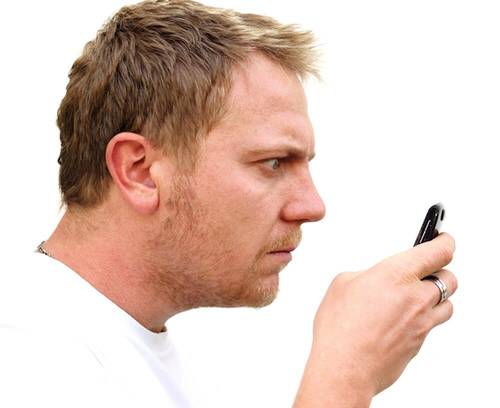
If the rumors are true — and given Facebook’s management of the press, I suspect they are — then by next week the world will finally have its “Facebook Phone.”
Whoopee. A device, and possibly an entire operating system, that’s almost wholly unnecessary and likely to benefit pretty much no one — neither Facebook nor its users. The fact is, iPhone and Android users are certainly not hurting for Facebook access. Is there really more that Facebook can offer us — or more data it can capture from us — by having its own smartphone OS? Unlikely.
Like It Or Not, Here It Comes
Nonetheless, the die appears cast. The Wall Street Journal, New York Times and others now agree that Facebook’s coy “Come see our new home on Android” announcement scheduled for next week is in fact the official coming out of the long-rumored Facebook Phone. Nick Bilton and Brian Chen, writing for the Times, assert that Facebook is set to announce its own version of Android, one “specifically optimized for Facebook and designed for an HTC phone”:
When the device is turned on, it will immediately display a Facebook user’s home screen, the source said, a fact reported earlier by The Wall Street Journal. Facebook’s camera and messaging apps will be the default apps for the core functions of the phone.
Facebook should know better. Its own bought-and-paid-for data shows that there’s really no need for a Facebook phone.
We Are Already Facebook Junkies
Earlier this week, a Facebook-sponsored IDC survey of iPhone and Android users revealed, shockingly, that we are a nation of Facebook junkies. The average smartphone user apparently checks his or her Facebook status nearly 14 times every single day.
Facebook is the third most popular smartphone activity, according to the IDC data; 70% of respondents said they use their smartphones to access the social network. (Email was tops at 78%; Web browsing came in next, at 73%.) In other words, Facebook trumps maps, search, games and other activities on iPhones and Androids. Of the respondents who use Facebook on their smartphones, 61% check it from their phone at least once a day.
It’s hard to see just how much a Facebook phone, or Facebook OS, could shift these Facebook-friendly numbers. (Which, again, Facebook paid for.) Assuming you believe IDC, almost half (43%) of all respondents already check Facebook from their phone daily. Facebook would doubtless like to push that number up higher, but you have to wonder how much additional marginal usage it can squeeze by shoehorning users into Facebook Messenger instead of text messaging.
More data points on Facebook usage from the IDC survey include:
- Average daily time smartphone users spent on Facebook is 32 minutes, 51 seconds.
- Average number of daily sessions on Facebook is 13.8. These sessions typically last 2 minutes, 22 seconds.
- Overall numbers for Facebook usage are higher on the weekends than on weekdays, and also higher closer to bedtime than during the day.
- When broken down by specific activity, those 13.8 daily sessions are comprised of users checking their newsfeed (seven times per day on average), using Facebook messaging (4.1) and updating their status (2.7).
- 16% of Facebook smartphone users play games on Facebook daily.
- Facebook consumes an astounding one of every four minutes of time smartphone users spend on “social and communications activities.”
- Nearly 50% of users access Facebook from their smartphone while doing errands, shopping, preparing dinner and working out.
- Strangely enough, these numbers are nearly exactly the same for people engaged in physically social activities. IDC says that approximately 50% access Facebook from their phone while at class, eating out, at a concert, and even while at the movies.
What To Get The Facebook User Who Has Everything?
In other words, if a user has a smartphone, it’s pretty clear that he or she can already engage with Facebook at any time and from any place to his or her heart’s content. So if there is a Facebook Phone, the strategy behind it is probably much less about usage and more about Facebook encroaching directly on Google territory: search, maps and local advertising. That’s what a Facebook Phone should focus on.
Though the survey naturally focused on Facebook and social media, it offered several other interesting facts, including:
- 155 million, or about 50% of the entire U.S. population uses a smartphone, with this number expected to climb to 181 million (57% of the population) by the end of this year.
- 79% reach for their smartphone within 15 minutes of waking, and a surprisingly high 62% grab their smartphone the moment they wake. The numbers are even higher for those in the 18-24 demographic.
- Similarly, 79% of respondents (not necessarily the same as above) have their smartphones with them for “all but up to 2 hours of their waking day.”
- 25% of respondents can’t recall not having their phone at their side.
- 18-24 year olds might be doing something suspicious on Tuesdays, Wednesdays and Thursdays. According to IDC’s methodology statement: “During Tuesday through Thursday, 18-24 year-old respondents were underrepresented.” IDC had to adjust its weighting to counter this unexplained drop.
Image courtesy of Shutterstock

















